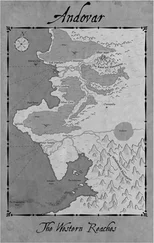Samuel Byers - With Fire and Sword
Здесь есть возможность читать онлайн «Samuel Byers - With Fire and Sword» — ознакомительный отрывок электронной книги совершенно бесплатно, а после прочтения отрывка купить полную версию. В некоторых случаях можно слушать аудио, скачать через торрент в формате fb2 и присутствует краткое содержание. Жанр: foreign_language, foreign_antique, foreign_prose, Историческая проза, на английском языке. Описание произведения, (предисловие) а так же отзывы посетителей доступны на портале библиотеки ЛибКат.
- Название:With Fire and Sword
- Автор:
- Жанр:
- Год:неизвестен
- ISBN:нет данных
- Рейтинг книги:3 / 5. Голосов: 1
-
Избранное:Добавить в избранное
- Отзывы:
-
Ваша оценка:
- 60
- 1
- 2
- 3
- 4
- 5
With Fire and Sword: краткое содержание, описание и аннотация
Предлагаем к чтению аннотацию, описание, краткое содержание или предисловие (зависит от того, что написал сам автор книги «With Fire and Sword»). Если вы не нашли необходимую информацию о книге — напишите в комментариях, мы постараемся отыскать её.
With Fire and Sword — читать онлайн ознакомительный отрывок
Ниже представлен текст книги, разбитый по страницам. Система сохранения места последней прочитанной страницы, позволяет с удобством читать онлайн бесплатно книгу «With Fire and Sword», без необходимости каждый раз заново искать на чём Вы остановились. Поставьте закладку, и сможете в любой момент перейти на страницу, на которой закончили чтение.
Интервал:
Закладка:
With Fire and Sword
PREFACE
In war some persons seek adventures; others have them in spite of themselves. It happened that the writer of this book belonged to a regiment that seemed to be always in the midst of great experiences. It was, in fact, one of the few regiments that absolutely fought themselves out of existence. It was mustered in a thousand strong; it lost seven hundred and seventy-seven men by death, wounds, and disease. The fragment that was left over was transferred to a cavalry command. When the writer finally escaped from prison, after many months of confinement and many thrilling adventures both in prison and in the army of the enemy, he was mustered out as a "supernumerary officer." His command had ceased to exist. He was literally the last man of the regiment . Of the eighty of his regiment who had been taken to prison with him all but sixteen were dead. Of the nine captured from his own company all were dead but one.
While with his command he had served as a private soldier, as sergeant, and as adjutant. On escaping from prison he was for a time on General Sherman's staff and was selected to run down the Cape Fear River and carry the great news of Sherman's successes to the people of the North.
He kept a diary every day in the four years of war and adventure. The substance of the facts related here is from its pages; occasionally they are copied just as they are there set down. The book is not a history of great army movements, it is simply a true tale of the thrilling experiences of a subordinate soldier in the midst of great events.
CHAPTER I
I am writing down these sketches of adventures of mine from a daily journal or diary kept by me throughout the four years of the Civil War. Its pages are crumpled and old and yellow, but I can read them still.
Fate so arranged it that I was the very first one to enlist in my regiment, and it all came about through a confusion of names. A patriotic mass-meeting was held in the court-house of the village where I lived. Everybody was there, and everybody was excited, for the war tocsin was sounding all over the country. A new regiment had been ordered by the governor, and no town was so quick in responding to the call as the village of Newton. We would be the very first. Drums were beating at the mass-meeting, fifes screaming, people shouting. There was a little pause in the patriotic noise, and then someone called out, "Myers to the platform!" "Myers! Myers! Myers!" echoed a hundred other voices. Mr. Myers never stirred, as he was no public speaker. I sat beside him near the aisle. Again the voices shouted "Myers! Myers!" Myers turned to me, laughed, and said, "They are calling you, Byers," and fairly pushed me out into the aisle. A handful of the audience seeing Myers would not respond, did then call my own name, and both names were cried together. Some of the audience becoming confused called loudly for me. "Go on," said Myers, half-rising and pushing me toward the platform.
I was young, – just twenty-two, – ambitious, had just been admitted to the bar, and now was all on fire with the newly awakened patriotism. I went up to the platform and stood by the big drum. The American flag, the flag that had been fired on by the South, was hanging above my head. In a few minutes I was full of the mental champagne that comes from a cheering multitude. I was burning with excitement, with patriotism, enthusiasm, pride, and my enthusiasm lent power to the words I uttered. I don't know why nor how, but I was moving my audience. The war was not begun to put down slavery, but what in the beginning had been an incident I felt in the end would become a cause.
The year before I had been for many months on a plantation in Mississippi, and there with my own eyes had seen the horrors of slavery. I had seen human beings flogged; men and women bleeding from an overseer's lash. Now in my excitement I pictured it all. I recalled everything. "And the war, they tell us," I cried, "is to perpetuate this curse!" In ten minutes after my stormy words one hundred youths and men, myself the first, had stepped up to the paper lying on the big drum and had put down our names for the war.
We all mustered on the village green. Alas, not half of them were ever to see that village green again! No foreboding came to me, the enthusiastic youth about to be a soldier, of the "dangers by flood and field," the adventures, the thrilling scenes, the battles, the prisons, the escapes, that were awaiting me.
Now we were all enthusiasm to be taken quickly to the front, to the "seat of war." We could bide no delay. Once our men were on the very point of mobbing and "egging" our great, good Governor Kirkwood, because for a moment he thought he would be compelled to place us in a later regiment. However, we were immediately started in wagons for the nearest railroad, fifty miles away.
At the town of Burlington, on the 15th of July, 1861, we were mustered into the service as Company B of the Fifth Iowa Infantry. Our colonel, W. H. Worthington, was a military martinet from some soldier school in Kentucky. His sympathies were with his native South. Why he was leading a Northern regiment was a constant mystery to his men.
The regiment spent scant time in Burlington, for in a little while we were whisked down the Mississippi River in a steamer to St. Louis, and soon joined the army of Frémont, organizing at Jefferson City to march against General Price, who was flying toward Springfield with the booty he had gained in his capture of Mulligan and his men at Boonville. Now all began to look like war. Missouri was neither North nor South; she was simply hell, for her people were cutting one another's throats, and neighboring farmers killed each other and burned each other's homes. The loyal feared to shut their eyes in sleep; the disloyal did not know if a roof would be above their heads in the morning. Brothers of the same family were in opposing armies, and the State was overrun by Southern guerrillas and murderers. The Quantrells, the James Brothers, and other irregular and roaming bands of villains rode everywhere, waylaying, bushwhacking, and murdering.
We followed General Price's army to the Ozark Mountains, marching day and night – the nights made hideous by the burning of homes on the track of both the armies, while unburied corpses lay at the roadside. We marched half the nights and all the days and just as we got close enough to fight, the Washington politicians caused Frémont to be removed from his command. Frémont had been ahead of his time. He had freed some slaves, and the dough-faced politicians were not yet ready for action of that character.
The campaign had been to no purpose. Some of our regiment, indignant at the removal of their general, had to be guarded to prevent mutiny and disorder. Now we turned about and made the long march back to the Missouri River. Half that cold winter was spent near Syracuse, in guarding the Pacific Railway. We lived in wedge tents, and spite of the cold and snow and storm, our squads by turn tramped for miles up and down the railroad in the darkness every night. What terrible tales, too, we had in our little tents that winter, of the deeds of Quantrell's men. It did not seem possible that the South could set loose a lot of murderers to hang on the skirts of our army, to "bushwhack" an honorable foe, burn villages, destroy farms, and drive whole counties into conditions as frightful as war was in the Middle Ages. Only savage Indians fought that way. Yet Quantrell's band of murderers was said to be on the payroll of the Confederate States. Here and there, however, his guerrilla outlaws met with awful punishment, and horrible incidents became the order of the day and night.
Читать дальшеИнтервал:
Закладка:
Похожие книги на «With Fire and Sword»
Представляем Вашему вниманию похожие книги на «With Fire and Sword» списком для выбора. Мы отобрали схожую по названию и смыслу литературу в надежде предоставить читателям больше вариантов отыскать новые, интересные, ещё непрочитанные произведения.
Обсуждение, отзывы о книге «With Fire and Sword» и просто собственные мнения читателей. Оставьте ваши комментарии, напишите, что Вы думаете о произведении, его смысле или главных героях. Укажите что конкретно понравилось, а что нет, и почему Вы так считаете.












